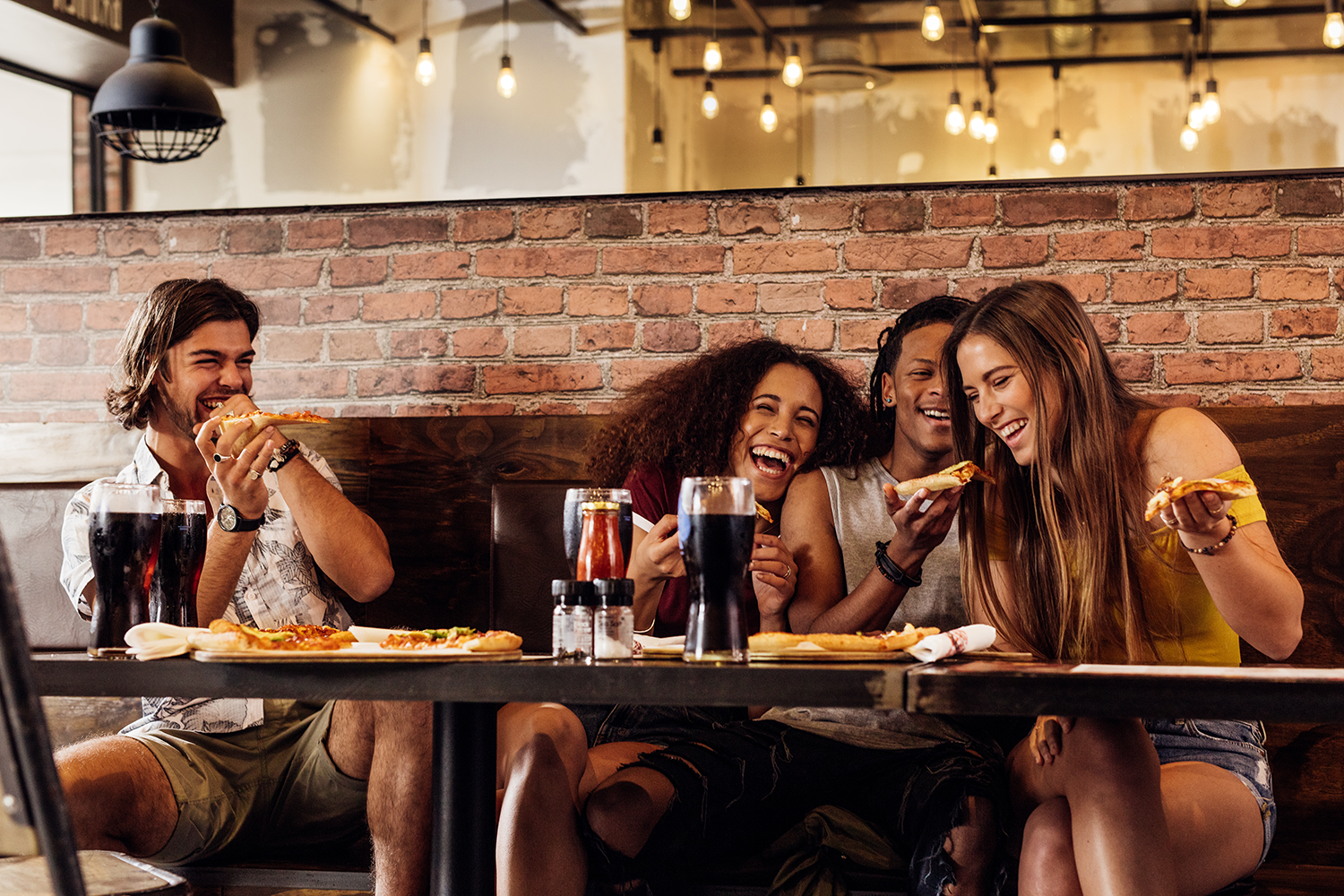By Maulik Pandya, Contributor
The restaurant is one of the most competitive industries. People wanting to dine out or order-in have plenty of options, meaning you need to compete for every guest’s attention in multiple ways.
And since your restaurant is new, you will have to go the extra mile to attract potential customers. However, being the new kid on the block also has benefits, if you can capitalize on it – such as novelty and people wanting a new, different dining experience than what the neighborhood had previously.
With an effective marketing strategy, you can boost brand awareness, expand your customer base, and retain existing guests. It typically involves promoting your food and services to your target audience to entice them to order.
To make things easier for you, we’ve created this guide that talks about restaurant promotion ideas that bring great results.
10 Best Restaurant Marketing Ideas
There is no one way to market your restaurant. Instead, it involves a sequence of actions to get the best results. Cast multiple nets to catch more fish. That’s exactly what we will discuss today!
1. Go Digital
Building a strong online presence for your restaurant has become more important than ever. It makes you discoverable to customers searching for restaurants online and opens opportunities for attracting a much broader market of consumers.
Begin with creating a responsive, user-friendly website (if you don’t have one yet). Your website should contain all the information about your restaurant, including contact number, address (even if you don’t offer dine-in services), menu, opening hours, and customer reviews. It should also allow guests to place orders.
Also, don’t forget to claim your Google My Business profile. It will help you rank higher on local searches related to restaurants.
Go to Google My Business.
Upload relevant details (restaurant’s name, address, phone number, opening hours, etc.).
Then, add additional information (photos, accepted forms of payments, delivery options, etc.).
2. Invest in High-Quality Food Photos
Once you have built the website and claimed your GMB profile, it’s time to create accounts on social platforms like Facebook and Instagram. They allow you to share regular updates about your restaurant and build a loyal following.
However, to do that, you will need mouth-watering photos that show how delicious your foods are. So, before you upload any picture, think, “If I saw this picture on the internet, would I try this dish?” If yes, go ahead and post it. If not, it’s time to click the pictures again.
Here’s an example from Eatance. The image looks tempting enough to make people try it. Plus, the image is of high quality, allowing customers to get a better look at it.
If your budget allows, hire a professional photographer who has some experience with food photography. They will make sure each of your dish’s photos attracts hungry eyes and compels them to order.
Note: Never share photos that aren’t yours (i.e., by downloading them from the internet). Eventually, your followers will realize it and might call it, hurting your brand reputation. Plus, it’s unethical.
3. Share Everything You Do with Your Guests & Followers
Marketing your new restaurant is all about being in front of customers all the time. It will keep you atop their mind and might entice them into ordering from you when they’re hungry.
To get the most out of this marketing strategy for restaurants, share behind the scenes (i.e., what happens inside the kitchen), the hygiene practices you follow, and other peak moments on social media.
When you do this regularly, people will follow you for more than just seeing food pictures. Eventually, it will help build trust with potential guests and intrigue their interest in your restaurant, leading to an increase in sales.
4. Create an Email List
When people order from you online, you will get access to their email addresses. You can also collect their email on your website by encouraging them to sign up for your newsletter or running giveaways on social media.
You can then use this information to build a community that will become your regular diners (and even brand advocates). All you need to do is keep in touch with them and provide a personalized experience.
As of now, personalization is implemented mostly by ecommerce companies, but here’s how your restaurant can do leverage it:
Use the first name of the customer in the subject line – typically coded with %FIRSTNAME%.
Segment users based on how frequently they order and the cuisine they prefer.
Send offers and deals related to that very cuisine to encourage repeat purchases.
Add a call-to-action (CTA) button that takes users to your website for ordering.
Test different copies to determine what works the best for your restaurant – called A/B testing.
For weekly newsletters:
Share how all your dishes are prepared to build trust.
Tell guests what safety measures you take while preparing and packing the food.
5. Reward Your Followers
Rewarding your loyal followers is a great marketing strategy for restaurants. It involves identifying people who engage with your posts regularly and rewarding them for making them feel valued and improving engagement.
You can reward the follower who:
Commented on, liked, or shared most of your posts in a month.
Published positive reviews of your restaurant.
Share pictures of your dishes on social media.
You can even encourage them to do the above by sending a discount coupon with every order. For instance, when someone orders from you, send a card along with it that says 10% off on the next order if you share the picture of your order and tag us.
6. Start Loyalty Programs
Retaining customers is crucial for the restaurant’s success, especially when you’re just starting. While your food quality will be the primary deciding factor whether a customer comes back or not, you can still leverage other restaurant promotion ideas to increase your chances.
Here’s how a loyalty program works:
A loyalty program stores the number of times a customer has ordered food from you.
It then rewards them certain points based on the order value.
The customer can exchange the reward points to get a discount or a free meal on their next order.
7. Join Community Events
Probably one of the best food marketing ideas is to join community events. It will put you in front of people who would otherwise not know about your new restaurant. It is also a great way to meet people face-to-face and build a healthy relationship with them.
Consider participating in the local events, including food exhibitions, sponsoring charity fundraisers, marathons, or fairs.
When joining a food festival, make sure to showcase your finest dishes to customers. You can even offer a discount code to each customer to entice them to visit your restaurant again.
8. Promote User-Generated Content
User-generated content (UGC) is a great way to showcase social proof and build a long-lasting relationship with guests and your followers. Here are some ways to do so:
Incentivize users to post pictures of your restaurant.
Host a contest in your restaurant by inviting customers to post pictures of their favorite dish in your restaurant on social media.
Offer complimentary drinks to select customers. This will make them feel valued and encourage them to share it on social media.
Present food on platters that make customers go wow. They will definitely want to upload pictures on social media.
Create your restaurant’s hashtag and ask people to use it to get featured on your social handles.
9. Take Advantage of the Power of Online Reviews
Reviews help you build trust with potential customers and encourage them to visit your new restaurant. 97% of people read reviews of local businesses.
Encourage your customers to leave a review for your restaurant, especially on your website and Google. You can also offer a discount to customers to encourage them to give a review.
Also, the more ratings and reviews you have, the easier it will be to find you online. But don’t forget to respond to reviews, both positive and negative.
10. Use Influencer Marketing
The last marketing strategy for restaurants on our list is influencer marketing. It involves partnering with food bloggers and social media content creators in your area to spread the word about your restaurant. Since they have a huge following, it will bring great results to your business.
However, check their engagement level before partnering with them. Ideally, it should be more than 3%.
Once you’ve decided who to collaborate with, ask them to try your restaurant and share their thoughts on social media. You can offer them meals for free or incentivize them (monetarily) in exchange.
Since influencers are very active on social media and have a high reach, it will help you reach a wide audience base.
Conclusion
Marketing a restaurant is an ongoing process. As you get more accustomed to promoting your business, you will encounter new techniques that bring the best results for your restaurant.
About the Author:
If you don’t have the resources to go digital, we’re here to help. We can build a free restaurant website and restaurant delivery app so you can easily manage orders, promote your restaurant, and generate more sales.
Get started with Eatance today!

















